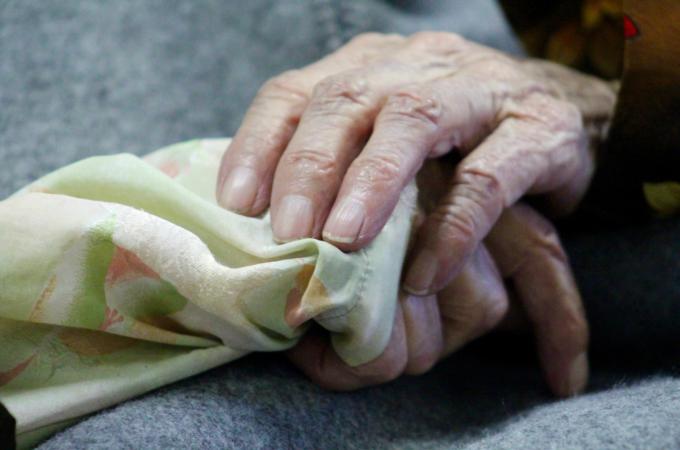Moral principles and hospice
Q. Please tell me how Catholics justify hospice care, especially withholding food and water from the patient. Doesn't this starve the patient to death? And doesn't the heavy medication they use actually cause death? (Illinois)
A. Patients are typically admitted into hospice care when curative treatment has been deemed futile and the prognosis is that death will occur within six months if the disease takes its normal course. The primary medical goal in caring for the dying person then becomes the relief of pain and suffering.
Catholic moral principles for the treatment of the dying are set forth in a document (available online) published by the U.S. Conference of Catholic Bishops entitled Ethical and Religious Directives for Catholic Health Care Services.
Those directives provide that "in principle, there is an obligation to provide patients with food and water, including medically assisted nutrition and hydration for those who cannot take food orally," because, as you rightly state, it would be morally wrong to "starve the patient to death" (No. 58).
But that same section of the directives goes on to explain that medically assisted nutrition and hydration become "morally optional" when there is no reasonable expectation of prolonging life or when such means would be "excessively burdensome" for the patient or cause significant physical discomfort.
As for medication, the directives address your question directly: "Medicine capable of alleviating or suppressing pain may be given to a dying person, even if this therapy may indirectly shorten the person's life so long as the intent is not to hasten death" (No. 61).
Since hospice care is offered both by religious and secular institutions, it would be best to seek that care in a Catholic facility, thus ensuring that Catholic moral guidelines would be observed.
An important aspect, too -- and sometimes families and even physicians might overlook this -- is that, when possible, dying patients themselves should be consulted about the morally legitimate treatment options available.
Q. Our son recently got married. While he was baptized and confirmed as a Catholic, he left the Catholic Church some time ago and is now a practicing member of a Protestant denomination. His wedding was in a Protestant church and the officiant was a minister.
A rift has occurred because one member of our family refused to attend the ceremony; that member has told the rest of us that, not only are our son and his wife not really married and living in a "sinful relationship," but that any Catholic who went to the wedding committed a mortal sin. Please advise me of the church teaching on this scenario, so that I can advise the family. (City of origin withheld)
A. I am disappointed -- as you probably are, too -- that your son has left the practice of the Catholic faith. I believe that the Catholic religion is the one most consistent with the teachings of Jesus and, especially through the sacraments, that it offers the best help toward spiritual growth and salvation.
However, I would never presume to judge the state of your son's soul. My presumption instead would be that he made a conscientious decision to join a Protestant denomination, and I am happy that he backs up that decision by an active religious practice.
Without having full knowledge of all the details of the situation, I can't say for sure whether the church would consider the marriage valid, but I think it's important that you maintain a close relationship with your son. If he were my child, I would certainly attend his wedding with no fear of committing a mortal sin.
- - -
Questions may be sent to Father Kenneth Doyle at askfatherdoyle@gmail.com and 40 Hopewell St., Albany, N.Y. 12208.
- Father Kenneth Doyle is a columnist for Catholic News Service



















